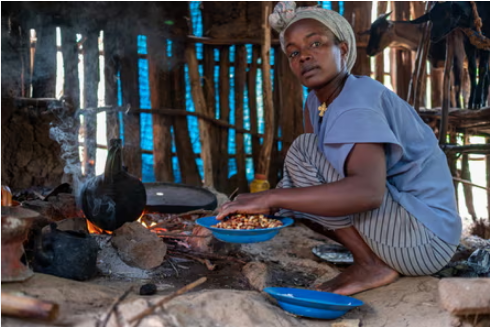Drinking coffee takes time in Ethiopia, a nation of caffeine lovers. In her village in Kafa, Ethiopia’s coffee heartland, Hagre Bekele starts by roasting the raw green beans over an open fire. Then she grinds them by hand and brews them in a jebena, a bulbous, long-necked clay pot. The drink is ready when the coffee boils and almost overflows.
Her son, Abraham, serves the drink in small cups, filled to the brim, alongside thick chunks of bread and handfuls of roasted grains, a snack called kolo. When the first cup is drunk, Hagre brews the grounds twice more. Generally, it is considered rude not to offer three cups. She also burns incense: its aroma enhances the coffee’s taste, and some believe it keeps bad spirits away.
The whole process lasts about an hour. To make things more efficient, and to ensure they get a regular caffeine fix throughout the day, Hagre shares brewing duties with her neighbours. Hagre is in charge of the lunchtime coffee, while her neighbour, Woynitu Gebre, takes care of the morning round. In the evening, everyone goes to Hagre’s mother-in-law’s. It is a system they have had in place for decades and one replicated, in various forms, in millions of homes every day across Ethiopia.
In much of Ethiopia, coffee is sweetened by heaped teaspoons of sugar, but most people in this area of the south-west prefer it without. Some, though, will add salt. On special occasions, butter infused with basil, oregano and cardamom is mixed in – which, says Woynitu, “tastes the best”. Another popular addition is tenadam, or rue, a medicinal herb.



No Comment Found.